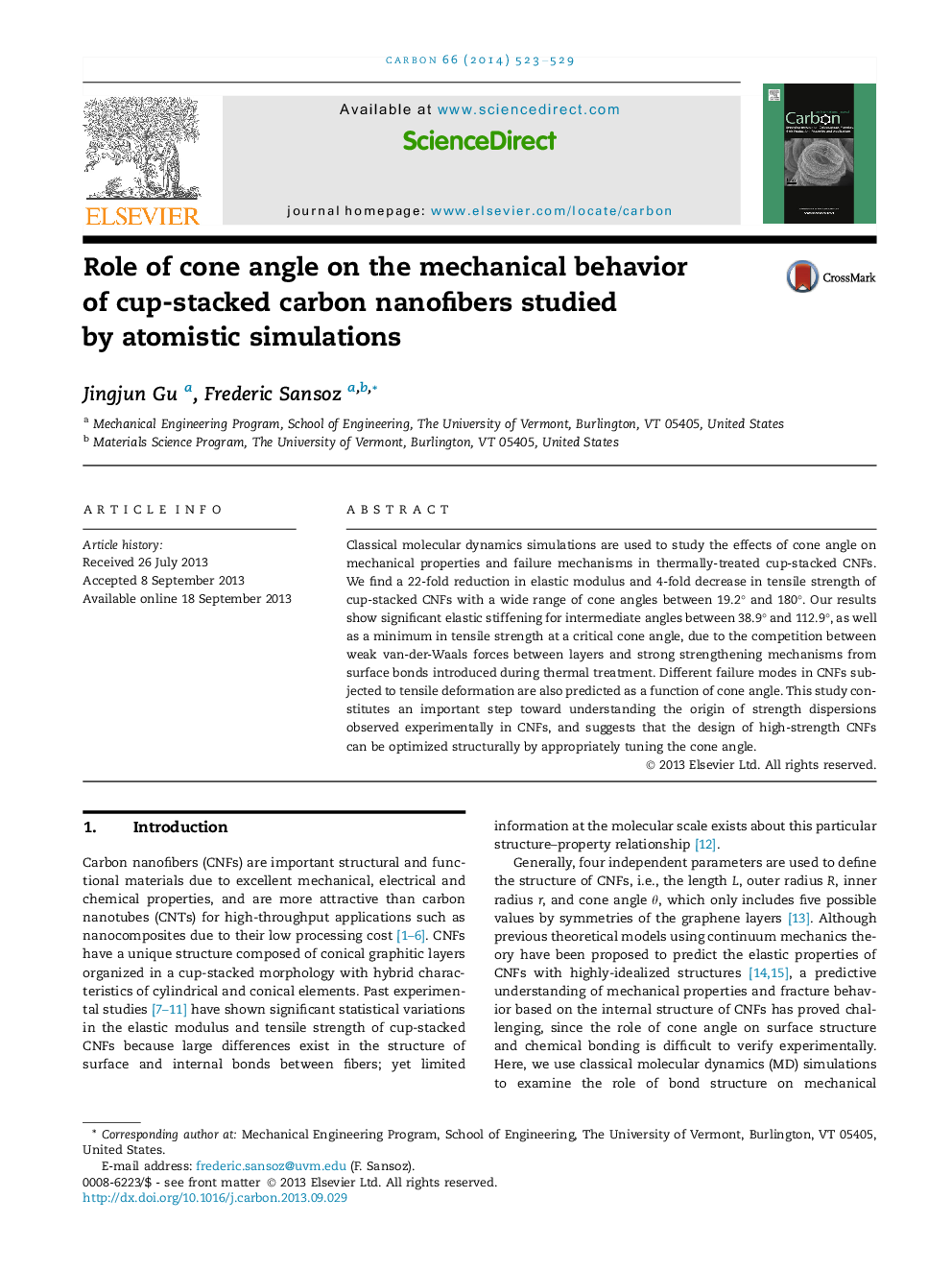| Article ID | Journal | Published Year | Pages | File Type |
|---|---|---|---|---|
| 7855698 | Carbon | 2014 | 7 Pages |
Abstract
Classical molecular dynamics simulations are used to study the effects of cone angle on mechanical properties and failure mechanisms in thermally-treated cup-stacked CNFs. We find a 22-fold reduction in elastic modulus and 4-fold decrease in tensile strength of cup-stacked CNFs with a wide range of cone angles between 19.2° and 180°. Our results show significant elastic stiffening for intermediate angles between 38.9° and 112.9°, as well as a minimum in tensile strength at a critical cone angle, due to the competition between weak van-der-Waals forces between layers and strong strengthening mechanisms from surface bonds introduced during thermal treatment. Different failure modes in CNFs subjected to tensile deformation are also predicted as a function of cone angle. This study constitutes an important step toward understanding the origin of strength dispersions observed experimentally in CNFs, and suggests that the design of high-strength CNFs can be optimized structurally by appropriately tuning the cone angle.
Related Topics
Physical Sciences and Engineering
Energy
Energy (General)
Authors
Jingjun Gu, Frederic Sansoz,
